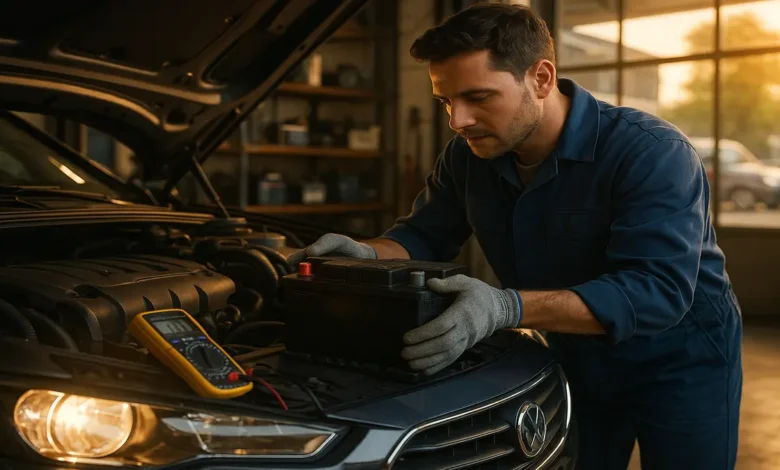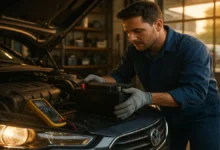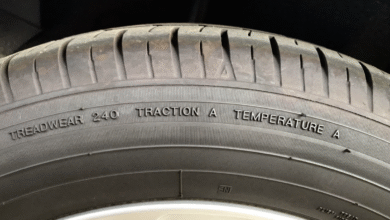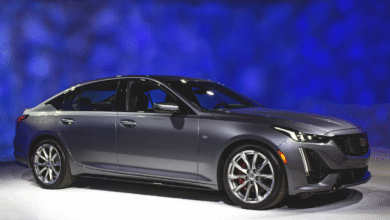The True Cost of Replacing a Car Battery: What to Expect and How to Save

Discover the real cost of replacing a car battery, what affects pricing, and smart tips to save. Expert insights and FAQs for simple, reliable guidance on car battery replacement.
Why Replacing a Car Battery Demands More Than You Think
When your car battery dies, the price for a replacement can feel surprising. The cost of replacing a car battery isn’t just about the battery itself — many hidden factors add to it. Understanding these helps you see why one shop charges differently than another and how you can make a smarter decision.
The battery type is one of the biggest factors. There are standard lead-acid batteries, sealed maintenance-free batteries, AGM types, and even lithium versions for modern vehicles. Each type involves different manufacturing processes, materials, and lifespans. The more advanced or long-lasting the battery, the higher the cost.
Labor and shop overhead also matter. Mechanics charge for time, tools, testing, and warranty service. Complex vehicles with hidden or hard-to-reach battery compartments demand more labor. Urban areas with high shop rents may charge more than small towns.
Even your vehicle’s design affects pricing. Larger SUVs, trucks, and cars with luxury electronics require stronger batteries that cost more. Plus, some warranties, recycling fees, and installation extras are baked into the price.
When you look deeper, you see the cost is not random. It’s shaped by product quality, labor, warranty, and your vehicle’s needs.
Market Trends and Common Pricing Expectations
Battery prices differ depending on what kind you buy and where you live. For small cars with standard lead-acid batteries, the cost tends to stay on the affordable side. Add installation, and you’re usually paying a moderate amount for a quick, simple replacement.
Premium batteries, such as maintenance-free or AGM types, often cost more because of better construction, performance, and warranty. Some can reach higher prices, especially for vehicles with heavy electrical demands. Specialized batteries for imported or electric vehicles can raise the total further.
Local markets make a big difference. In areas where local manufacturers produce batteries, prices stay competitive. In places where imports dominate, the added taxes, duties, and transportation costs push prices up. Urban centers generally cost more than rural regions.
The best way to judge fairness is to compare local quotes for your car’s make and model. A quick comparison between trusted workshops can show whether a price is reasonable or inflated.
What Affects the Cost Behind the Scenes
The visible cost of a battery is only half the story. Manufacturing, materials, and logistics all influence what you pay at the counter.
High-quality batteries use better plates, thicker alloys, improved separators, and tighter assembly standards. These details boost performance and durability but also raise production cost. Better testing, safety standards, and warranty coverage further add to price.
Taxes, shipping, and import duties can significantly increase the final tag. Batteries are heavy, and transportation costs often make a noticeable difference. Locally made batteries can avoid those costs and sometimes provide better value.
Shops also add margins for warranties and extra services. Testing, diagnostic checks, or electronic resets for new batteries can each add small but legitimate charges. Shops offering long warranties or on-site replacement might have higher prices because their service level is greater.
When you see what’s involved, the total cost makes sense — it’s not just the battery but the entire chain of production, logistics, and care that reaches your vehicle.
Ways to Estimate What Your Situation Should Cost
Before saying yes to a quote, take a step back to estimate what’s fair.
Start by asking for the cost of the battery alone. Knowing the part’s standalone price helps you compare with other retailers or online sources. Then, ask for a breakdown of installation labor and extras. Transparent shops will have no problem showing you the details.
Compare costs for your specific car model in your region. Local driver groups or auto communities often share what they paid recently. If the quote you receive is far above that average, ask for an explanation.
Check warranty details — longer warranties can justify slightly higher prices, but not massive markups. Also, confirm whether the quote includes services like recycling or testing.
Get multiple estimates. Two or three quotes are usually enough to spot overpriced offers. A fair range gives peace of mind before you commit.
Regional Differences and Local Brand Options
Your location heavily affects the cost of replacing a car battery. Local brands often offer great value, while imported or premium brands carry higher price tags.
Locally made batteries are often tailored to weather conditions and regional vehicle types. They cost less because they skip import taxes and long shipping routes. Plus, they’re easier to service or claim warranties on locally.
Premium imported batteries usually boast advanced features, longer life, or global brand trust. But those advantages come at a premium, and sometimes the difference isn’t worth it for average driving needs.
In some regions, you’ll find numerous independent battery dealers competing for customers, keeping prices reasonable. Elsewhere, a few big service centers might dominate the market, allowing for higher markups.
To find the right balance, compare local options for price, reliability, and after-sales support. In most cases, local midrange batteries offer the best combination of performance and cost.
Tips to Save Without Compromising Quality
Saving money doesn’t mean buying the cheapest battery. It means spending wisely on the right product.
Choose the correct size and type for your car — not bigger or “more powerful” just because a salesperson says so. Overcapacity doesn’t always help and might even harm your electrical system. Stick with the specifications your car’s manual recommends.
Compare warranty coverage. Sometimes a slightly higher price is justified by a longer or more flexible warranty. But if two options are nearly identical except for branding, go with the more affordable one.
Ask for a clear breakdown of labor versus parts. When you know what each portion costs, you can negotiate fairly. Some shops may reduce labor or offer a discount if you’re a returning customer.
Battery specialty shops often provide better deals than full service centers. They focus solely on batteries and can install one quickly while testing your charging system for free.
Finally, take care of your new battery. Keep the terminals clean, avoid letting it drain fully, and ensure your alternator is working properly. Proper maintenance extends lifespan and reduces future replacement costs.
When a Replacement Is Truly Necessary
Not every weak start or flickering light means your battery is finished. Many people replace batteries prematurely because they don’t check other components.
A dead battery might actually result from a faulty alternator, loose terminal, or parasitic drain. Before agreeing to a replacement, ask your mechanic to test both the battery and the charging system.
If the test shows low voltage even after a full charge, or if the battery cannot hold charge overnight, replacement is justified. Most car batteries last several years, but extreme heat, cold, or frequent short trips can shorten their life.
Look for signs like sluggish cranking, dim dashboard lights, or corrosion on terminals. But always confirm with an actual test — guessing can waste money.
When replacement is confirmed, choose a quality battery and have it installed properly. Avoid cutting corners; a poorly installed or low-quality battery can create bigger issues later.
Comparison Table of Typical Battery Costs
| Battery Type | Installation Complexity | Warranty | Overall Relative Cost |
|---|---|---|---|
| Standard lead-acid | Easy | Basic | Low to medium |
| Maintenance-free | Simple | Good | Medium |
| AGM or performance | Moderate | Excellent | Medium to high |
| Premium or specialty | Complex | Top tier | High |
This table offers a visual idea of how pricing aligns with battery quality, labor, and features. If a shop’s quote feels far outside your category, ask for a detailed explanation.
Common Mistakes That Increase Replacement Costs
One of the most common mistakes drivers make is accepting the first quote without questioning it. Without itemized details, you could be paying for unnecessary add-ons. Always ask what each charge covers.
Another mistake is buying an overpowered or incorrect battery. Bigger doesn’t always mean better. The wrong specifications can reduce efficiency and life expectancy.
Some people replace the battery without testing the charging system. If the alternator or wiring is bad, a new battery will fail quickly, wasting your money. Always test the full system.
Ignoring maintenance is another cost trap. Leaving terminals dirty or allowing deep discharges repeatedly shortens battery life. Small efforts in upkeep prevent early replacements.
Finally, overlooking the fine print in warranty documents can be costly. Understand what’s covered, how long the coverage lasts, and whether the shop honors warranties in your area.
How Battery Life Affects Cost Over Time
Thinking about cost per year, not just the initial price, gives you a clearer picture.
A budget battery that lasts a short time might seem cheap but could cost more in the long run if replaced more often. A slightly more expensive battery that lasts years longer saves money overall.
Also consider the cost of inconvenience. A dead battery on a road trip or at night can mean towing or emergency fees, which far outweigh what you saved buying a low-end battery. Paying a little more upfront can save both money and stress later.
Some shops even offer partial credits or buy-back programs for failed batteries within warranty. These can reduce your long-term expenses, so ask about them before buying.
What to Ask Before Accepting a Quote
Before agreeing to replace your battery, ask the shop these key questions:
What’s the cost of the battery alone? What’s the labor fee? Are any extra services included, like testing or recycling?
How long is the warranty, and what exactly does it cover? Are there any exclusions or conditions?
Does my car need any software resets or electronic calibrations after installation? That’s important for modern vehicles with advanced systems.
Finally, ask whether they’ll price match another quote or offer a loyalty discount. Many shops are open to negotiation, especially if you’re a repeat customer.
By asking clearly, you eliminate surprises and ensure your bill matches your expectations.
Real Experiences from Drivers
Drivers’ experiences reveal how small choices make big differences.
One car owner was quoted a steep price for a standard sedan battery. By asking for a breakdown, he discovered most of the cost was inflated labor. Another local shop offered transparent pricing and performed the same job for far less.
Another driver in a hot region chose a premium battery with heat-resistant design. It cost more initially but lasted twice as long as cheaper models. Over time, that investment saved money and hassle.
These stories show that informed decisions and small comparisons lead to better outcomes.
FAQs
How do I know my battery needs replacement?
If your car cranks slowly, lights dim, or fails to start after charging, your battery might be weak. Always get it tested before replacing it.
Can I replace the battery myself?
Yes, if you know what you’re doing and take safety precautions. However, some vehicles require special tools or electronic resets best handled by a professional.
Does a higher-priced battery always last longer?
Usually, yes, but not always in proportion. Premium materials and design help, but usage habits and climate are equally important.
Is it necessary to recycle the old battery?
Yes. Car batteries contain hazardous materials and must be properly recycled. Most shops include recycling in their service.
Why does labor cost so much for a simple swap?
In some vehicles, accessing the battery involves removing panels or reprogramming electronics, which adds time and expertise.
Conclusion
Replacing a car battery may seem straightforward, but the real cost combines materials, labor, warranty, and regional economics. By understanding these factors, comparing quotes, and asking the right questions, you can confidently make the best decision for your car and budget.




